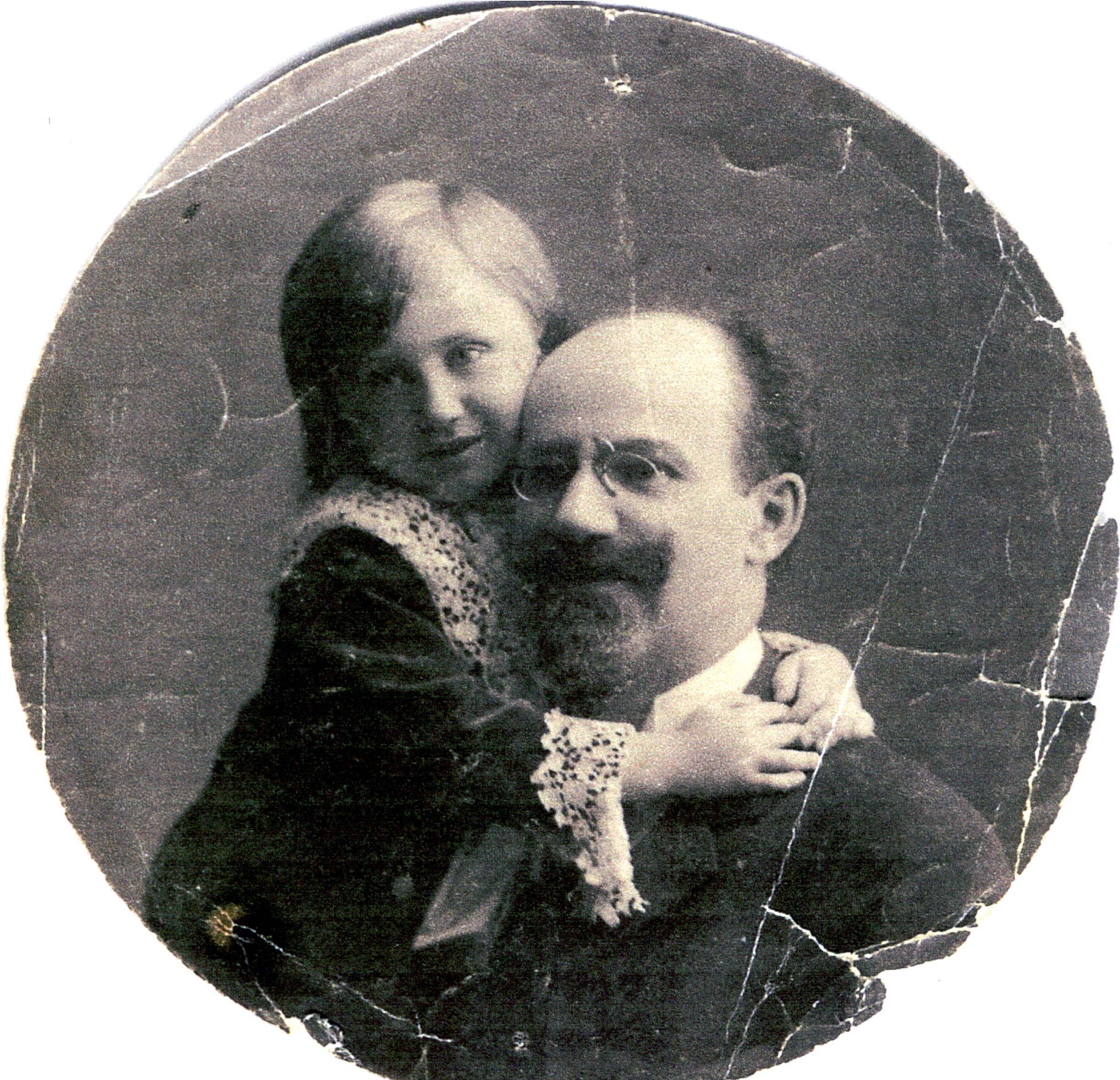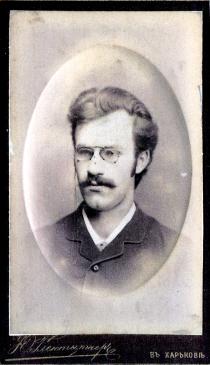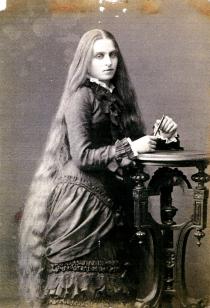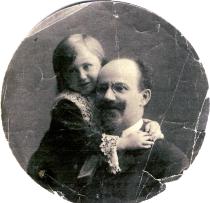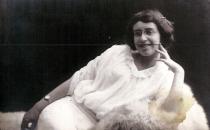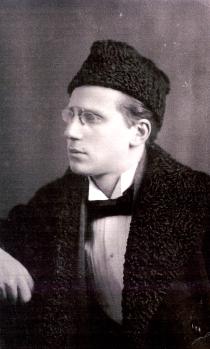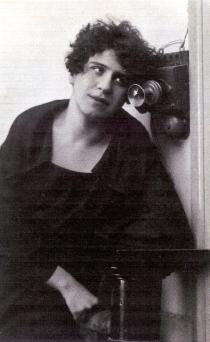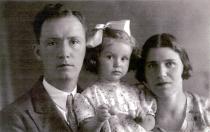My father, Anatoliy Zilberberg, on his 5th birthday with his father, Albert Zilberberg, in Kharkov in 1907.
My grandfather was born in Kharkov in 1860. He went to grammar school and had a special technical education, but I don't know where he studied. There were no signs of religiosity in the interior of the house - it was the standard home of a rich European man not a Jew. What I mean by that is that they didn't have special dishes for Pesach, silver chanukkiyah, religious literature, mezuzah on the door or any other general accessories of the Jewish way of life. I remember my grandfather well: he was a tall, stately, bold-headed man. When he lay down to rest I used to sneak from behind pulling him by the down on his head. He liked to play with me, probably because my father was his favorite son. He used to walk with a carved stick. There was a long stiletto fastened inside. I found it after his death.
My grandfather was a professional and his printing house was very profitable. In 1918 it was nationalized by the Soviet power. My grandmother told me that its employees went on strike when the printing house was expropriated by the Soviet authorities. They wanted their master back. And so the authorities appointed my grandfather director and then executive manager of the factory. My grandfather died in a road accident - he was hit by a bus - in 1933 when I was 7 years old. He didn't have a religious funeral. He was carried to the cemetery in a coffin on a black horse-driven cart. The horses had black horsecloths on their backs.
My father, the fifth child in the family, was born in 1902. He studied at the classical grammar school for boys in Kharkov. He was supposed to get a higher education later. They had classes in religion where they were divided into three groups, according to their religion. The classes were conducted by an Orthodox priest, a Catholic priest and a rabbi. Being a Jew, my father studied religion in the Judaism group, but his family paid little attention to religion, and he was growing up an atheist. My father studied well. He was easy-going, cheerful and popular. Nationality didn't matter to them at all. My father was fond of Russian literature and was very good at mathematics. He finished grammar school during the Civil War, so he couldn't enter a higher educational institution, according to new Soviet laws. He came from a bourgeois family and their children had no right to get a higher education. My father finished a course in accounting and became an accountant.
